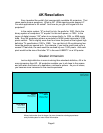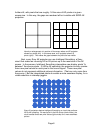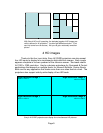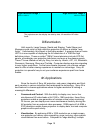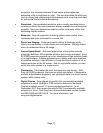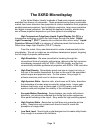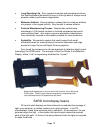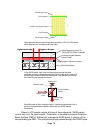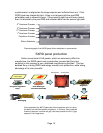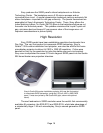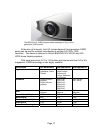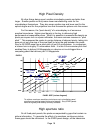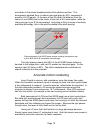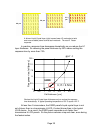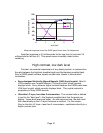
Page 14
Light passes through a high temperature polysilicon LCD (H-LCD) panel,
which features pre- and post-polarizing filters.
In the SXRD panel, light from the lamp enters through the glass
substrate at the top, passes through the Liquid Crystal layer, reflects off
the mirrored surface of the Silicon backplane, then passes out through
the Liquid Crystal, toward the screen.
Simplified view of Sony's optical engine. It performs polarization with a
series of Polarized Beam Splitters external to the SXRD panels
themselves.
Where H-LCD panels include all three of these elements, SXRD panels
include only one: the liquid crystal. Polarization is handled by external Polarized
Beam Splitters (PBS's). Before light reaches the SXRD panel, it reflects off the
corresponding pre-PBS. This pre-polarized light passes through the SXRD liquid
SXRD Panel
Polarized Beam
Splitter
Valved Light
Output
Polarized Light
Filtered Light
Input
Vertically Aligned Nematic
Liquid Crystal
Inorganic Alignment Layers
Index Matching Indium-Tin-
Oxide (IMITO) Glass Substrate
Silicon Backplane
Light to Screen
Light from Lamp
Filtered Light Input
Pre-Polarize
r
H-LCD Liquid Crystal Laye
r
Post-Polarize
r
Valved Light Output



